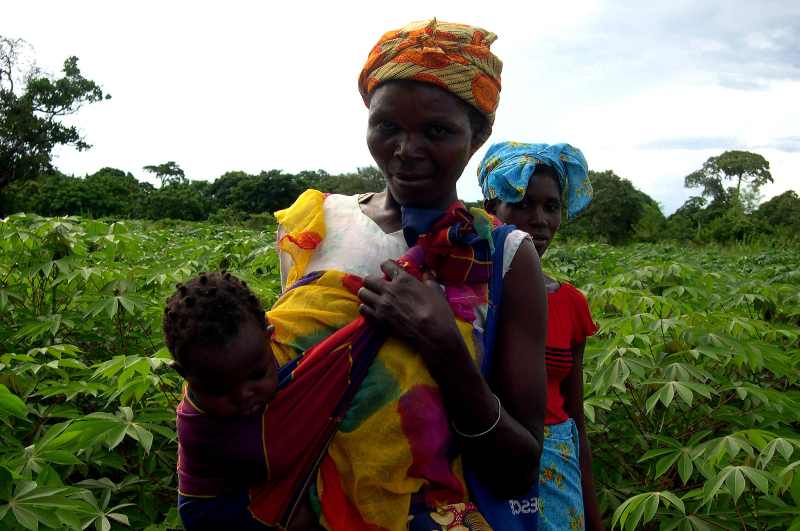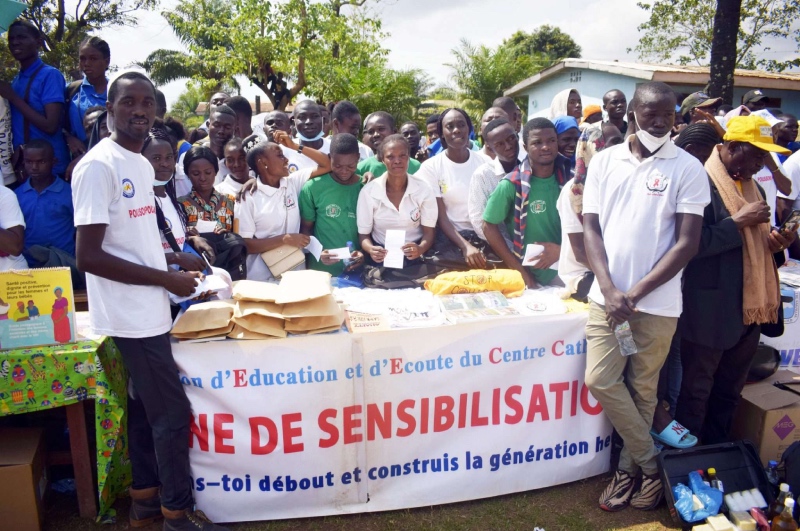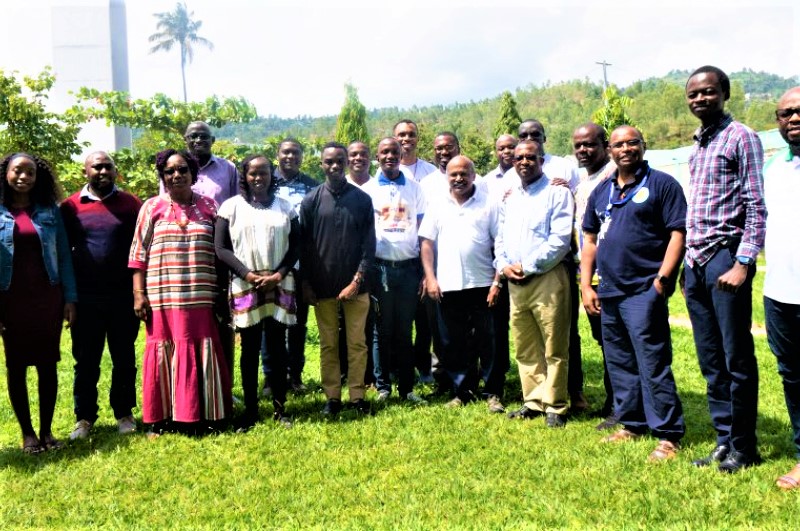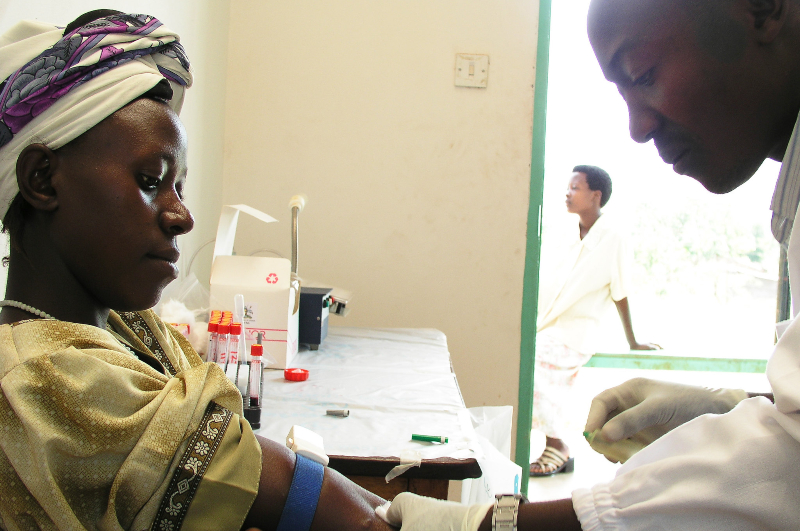

Since the start of the epidemic of HIV/AIDS, 75.7 million people have become infected, the world has lost 32.7 million people to AIDS-related illnesses, while millions bear the impact of the disease on their families.
As AJAN marks 20 years of service, the Jesuit Conference of Africa and Madagascar looks back and acknowledges the tremendous achievements in the fight against the epidemic – thanks to the generosity, resilience, and tireless efforts of Jesuits, their collaborators, donors and partners in mission to end HIV and AIDS.
It is encouraging that AJAN is amid a united global network of governments, international organisations, civil societies, religious organisations and communities whose initiative has recorded gains in HIV testing and treatment with the result that 81% of people living with HIV know their status, and an estimated 25.4 million of the 38.0 million people living with HIV had access to antiretroviral therapy by the end of 2019, thus averting 12.1 million AIDS-related deaths since 2010.
An epidemic at the helm of a Pandemic
Though AIDS is no longer considered to be an emergency and appears to be sliding down the agenda of international priorities. AJAN is only too aware that the epidemic remains a threat to millions of people, families and communities across sub-Saharan Africa.
It is easy to see “who” the African Jesuit AIDS Network (AJAN) are, from the name: A network of Jesuits, collaborators and their partners in mission in sub-Saharan Africa, who are involved in the ministry of AIDS care and HIV prevention. The Jesuits have long been responding to the challenges thrown up by HIV/AIDS in Africa. But it was only on June 21, 2002, that the continental Jesuit leadership – the Jesuit Superiors of Africa and Madagascar (JESAM) – identified AIDS as a shared priority and created AJAN to coordinate its struggle against the then pandemic.
20 years later, AJAN has worked hard to support the wide and diverse range of initiatives by Jesuits and their co-workers in AIDS ministry; to develop best practices, and to encourage the development of new programmes. AJAN is a work of the Jesuit Conference of Africa and Madagascar (JCAM), coordinated by a team headed by the AJAN Director, Fr. Ismael Matambura, SJ, in Nairobi, Kenya. AJAN is now present in 20 countries, reaching people in the remotest parts of Africa, who are often excluded.
Read about the AJAN at 20 celebration held in Bujumbura, Burundi.
There is a myriad of reasons why AIDS in Africa continues to be prevalent. One of the most formative explanations is poverty which dramatically impacts the daily lives of Africans. AJAN is determined to continue doing the utmost to be with those who are affected, to make sure they have all they need to live life to the full, and to prevent the further spread of the epidemic. To affirm Pope Francis's sentiments, solidarity with PLHIV and other vulnerable people in Africa is not a sporadic act of generosity, but it is central to our mission and to our ministry. Guided by the Scripture, the Church’s Teachings, the Pope’s leadership, and the Universal Apostolic Preferences (UAPs), Jesuits, their collaborators, and partners in mission have been and will continue responding to the HIV/AIDS crisis in solidarity with the most vulnerable. The Universal Apostolic Preferences (UAPs) of the Society of Jesus enjoin all to walk with the excluded in society, that is people who are vulnerable, weak, and marginalised by social and physical diseases, including HIV/AIDS. They also remind us of the importance of walking with young people in search of a hope-filled future that also consists of an HIV-free generation. Over several decades of the epidemic, religious institutions have been part of global solidarity, playing a central role in the response to HIV/AIDS. Jesuits, their collaborators and partners in the Jesuit Conference of Africa and Madagascar (JCAM) continue to give serious attention to the AIDS epidemic and its implications for the community.
AJAN is committed to the realisation of the Sustainable Development Goal of ending the AIDS epidemic by 2030. While it sounds ambitious, we believe that it is possible if we act in solidarity and assume our responsibility. “With God nothing is impossible” (Luke 1:37).
The presence of the African Jesuit AIDS Network (AJAN) since 2002, as the continental body coordinating Jesuit responses to HIV/AIDS, is a concrete testimony to our solidarity and shared responsibility. AJAN's vision is to "empower individuals, families and communities, and to work towards an HIV- and AIDS-free society, and towards the fullness of life." This is realized by Jesuits and their collaborators as they reach out daily to the people with HIV, their families, their widows, and their orphans. Across sub-Saharan Africa, AJAN centres work directly with vulnerable members of communities offering services that include pastoral counselling, home-based care, income-generating activities, and educational, medical and nutritional support. Prevention of HIV through value-based education, prevention of mother-to-child transmission and testing services is crucial, not least among young people.
AJAN also pays close attention to the integral formation of the youth with the aim of engendering an HIV-free generation in Africa. This is done through AJAN HIV & AIDS Prevention Programme for Youth (AHAPPY Generation). AHAPPY is a contextualized programme, rooted both in the Ignatian spirituality and African culture and values.
In the course of their ministry, Jesuits and their collaborators find that they are also called to defend the dignity and rights of those affected, which are often threatened by stigma, discrimination and by the lack of care, treatment and opportunities that they need to live life to the full.
In all this work, it is considered crucial to listen to people living with HIV and others who are affected, to shape responses according to their needs, and to invite their participation in services offered.
The mission of AJAN as a network is to offer Jesuits and their collaborators all the facilitation and support they need for this AIDS ministry: networking, coordination of advocacy initiatives, as well as capacity-building and resource mobilisation.
Image on banner: Testing for HIV in Mukono. International Development Association (IDA) support has contributed to improved health for Ugandans with targeted supports to the Ugandan health sector. Uganda has pioneered 'citizen report cards' at the community level in health care. Uganda. Photo: Arne Hoel / World Bank
Related Articles
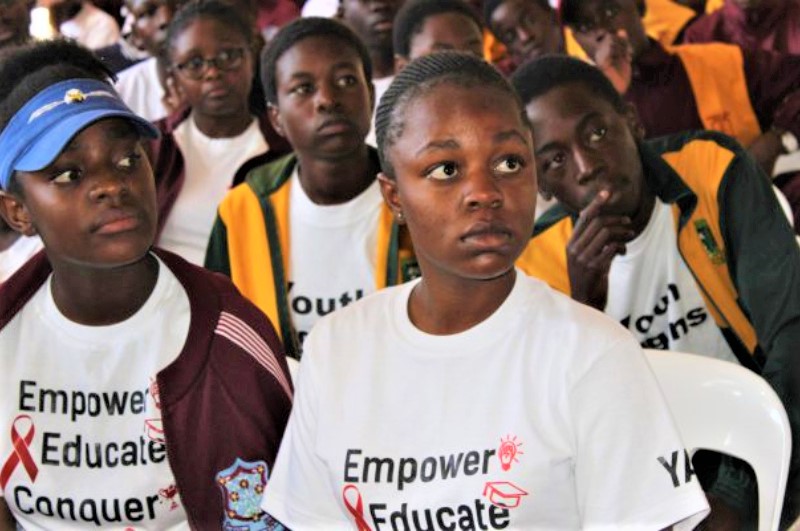
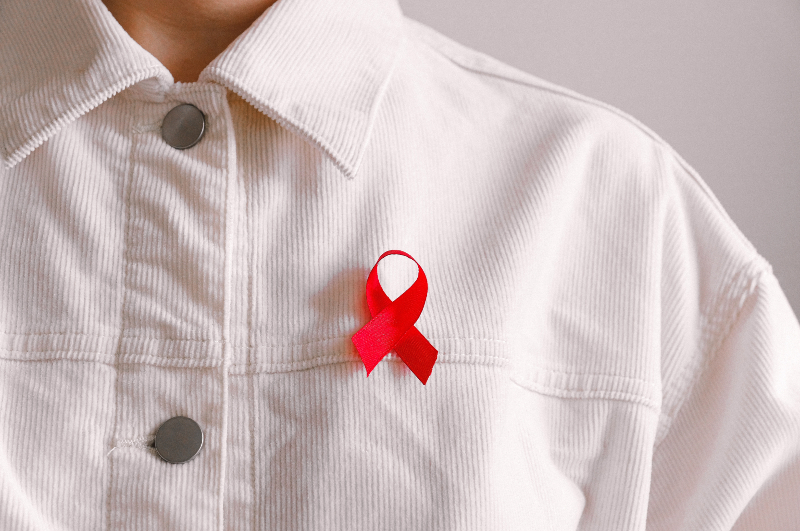
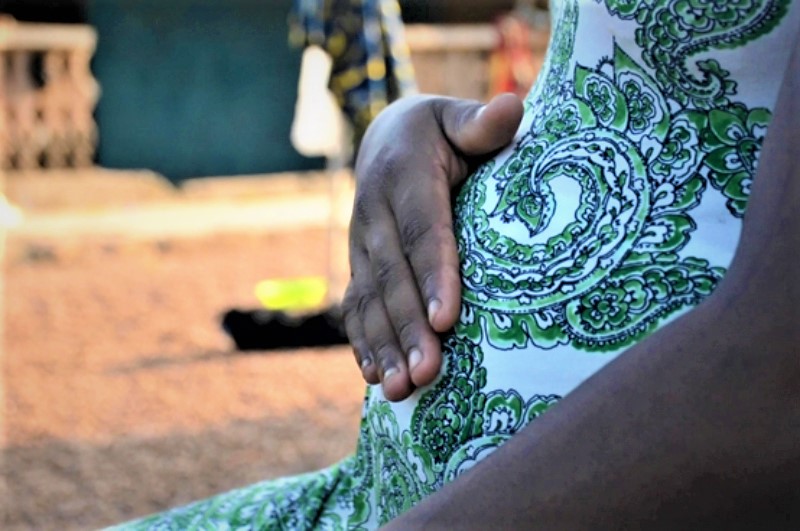
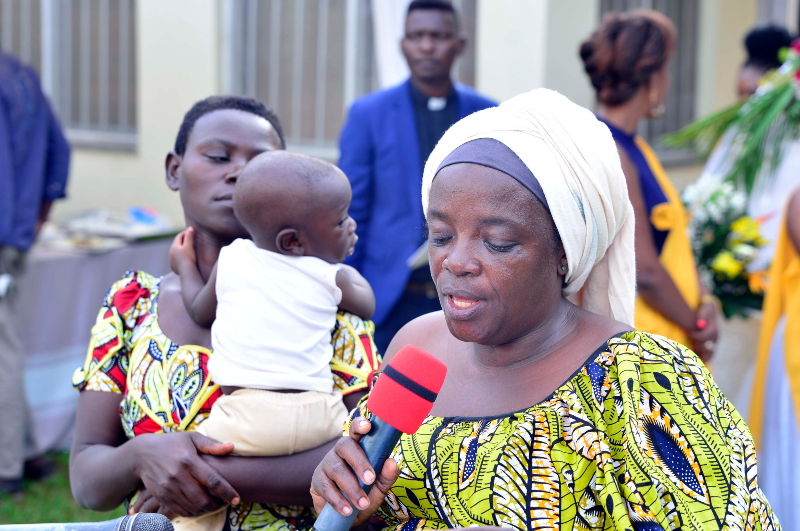
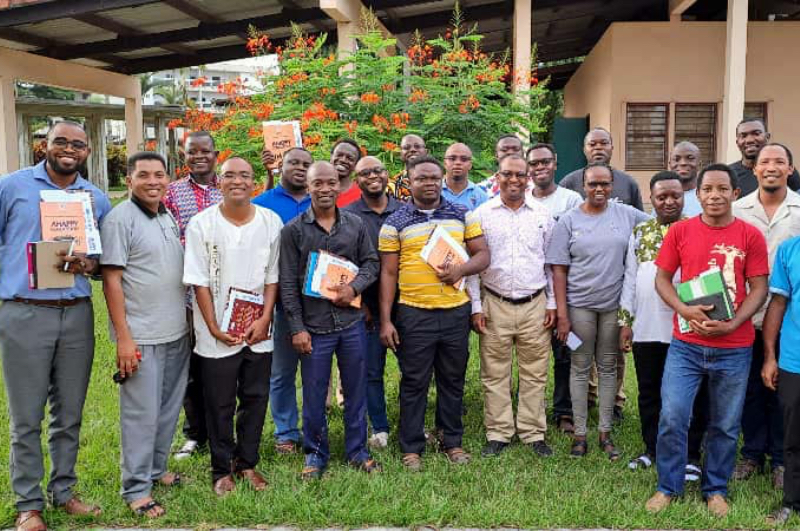
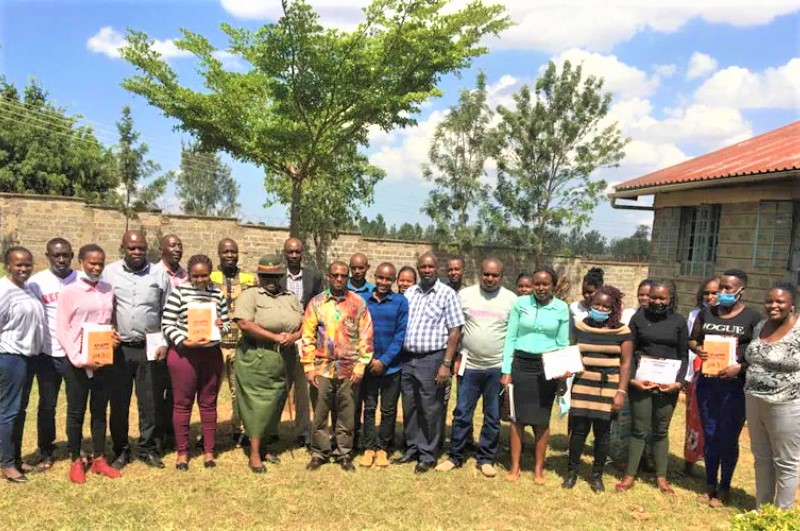
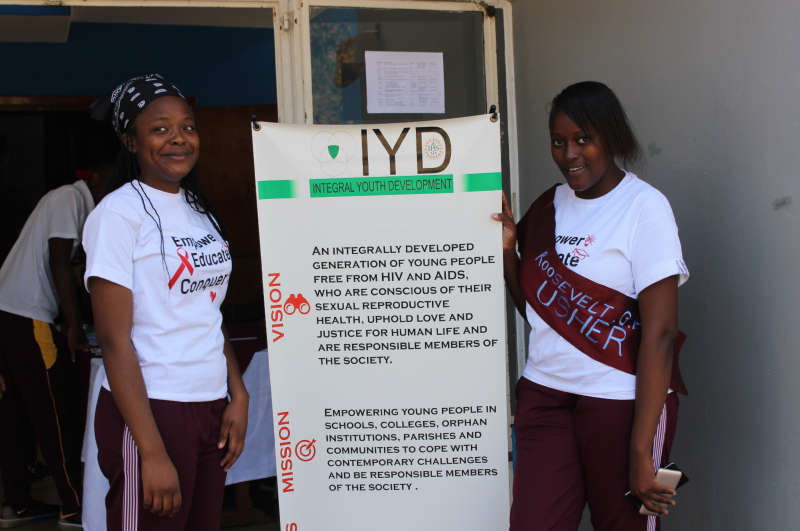
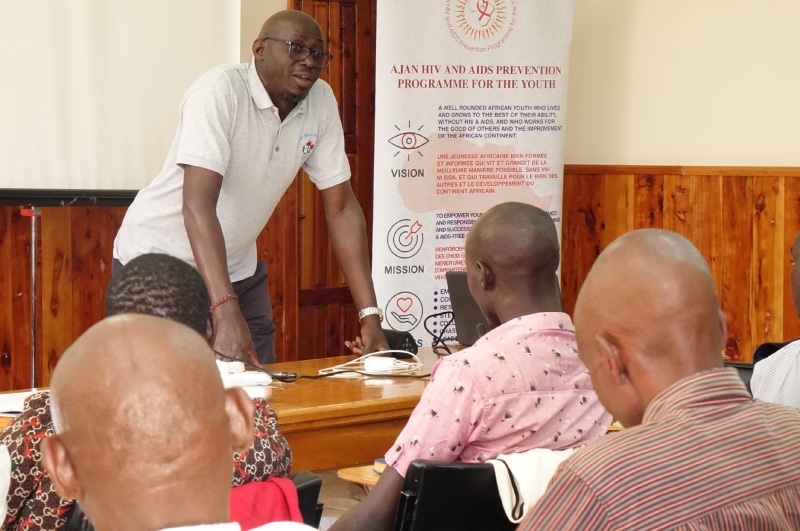
Select Payment Method
Pay by bank transfer
If you wish to make a donation by direct bank transfer please contact Fr Paul Hamill SJ treasurer@jesuits.africa. Fr Paul will get in touch with you about the best method of transfer for you and share account details with you. Donations can be one-off gifts or of any frequency; for example, you might wish to become a regular monthly donor of small amounts; that sort of reliable income can allow for very welcome forward planning in the development of the Society’s works in Africa and Madagascar.
Often it is easier to send a donation to an office within your own country and Fr Paul can advise on how that might be done. In some countries this kind of giving can also be recognised for tax relief and the necessary receipts will be issued.


